The Philippines’ Department of Health has confirmed its first case of the 2019-nCoV involving a 38-year-old Chinese woman on January 30, 2020. Information about the virus has circulated online and other media faster than the virus itself. Some false, some true.
salida|etc has compiled all the World Health Organization’s (WHO) recommendations for the general public to reduce exposure to and transmission of the virus.
Protect Yourself and Others
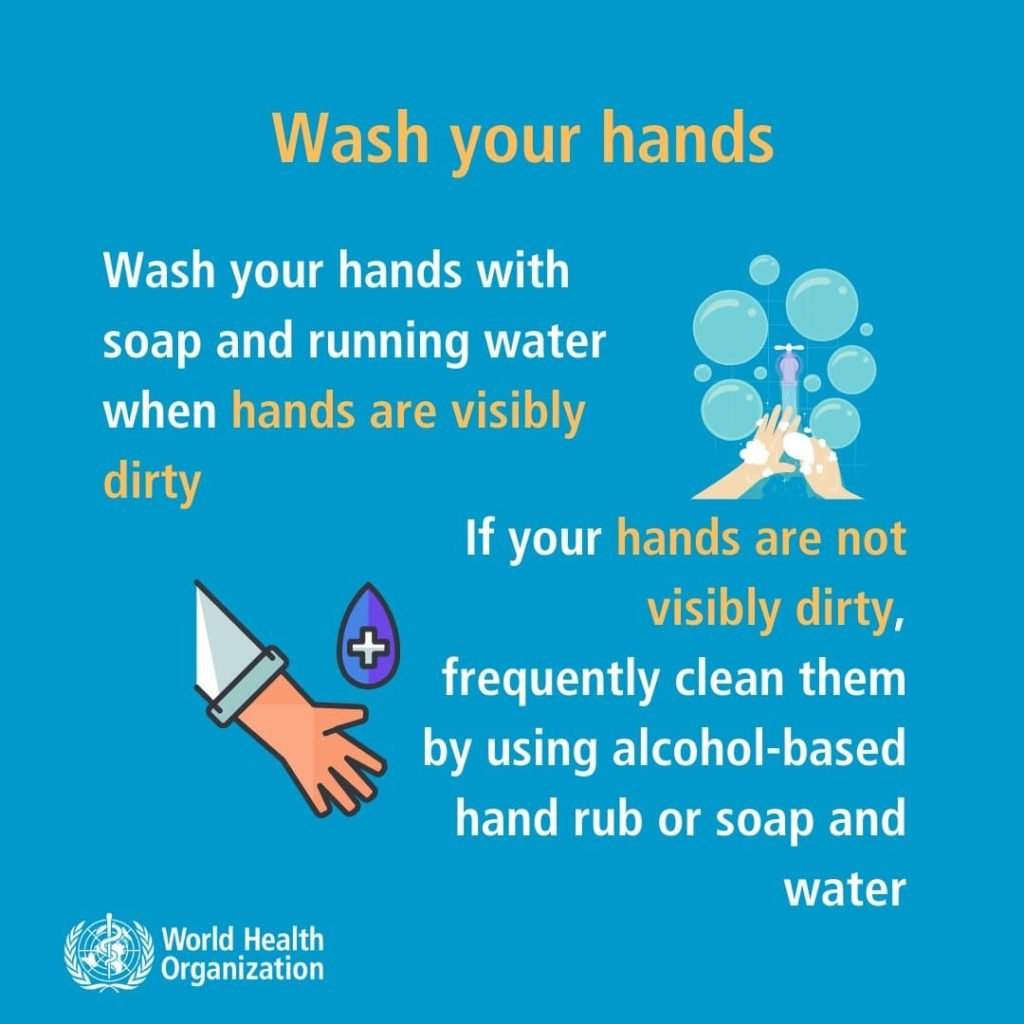
- Wash your hands with soap and running water when hands are visibly dirty. If your hands are not visibly dirty, frequently clean them by using alcohol-based hand rub on soap and water.

- Wash your hands
- after coughing or sneezing
- when caring for the sick
- before, during, and after you prepare food
- before eating
- after toilet use
- when hands are visibly dirty
- after handling animals or animal waste
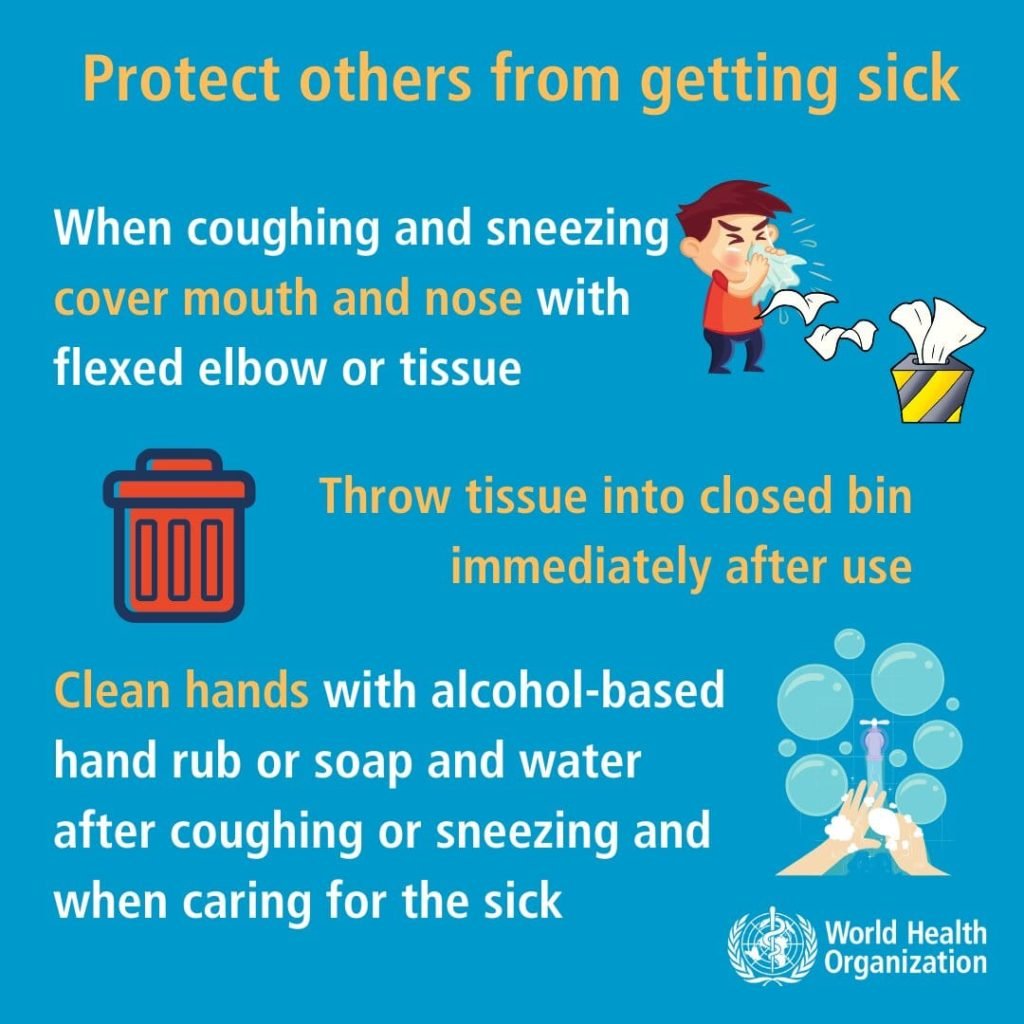
- When coughing and sneezing, cover mouth and nose
with flexed elbow or tissue. Throw tissue into closed bin immediately after
use.
- Clean hands with alcohol-based hand rub or soap and water after coughing or sneezing and when caring for the sick.
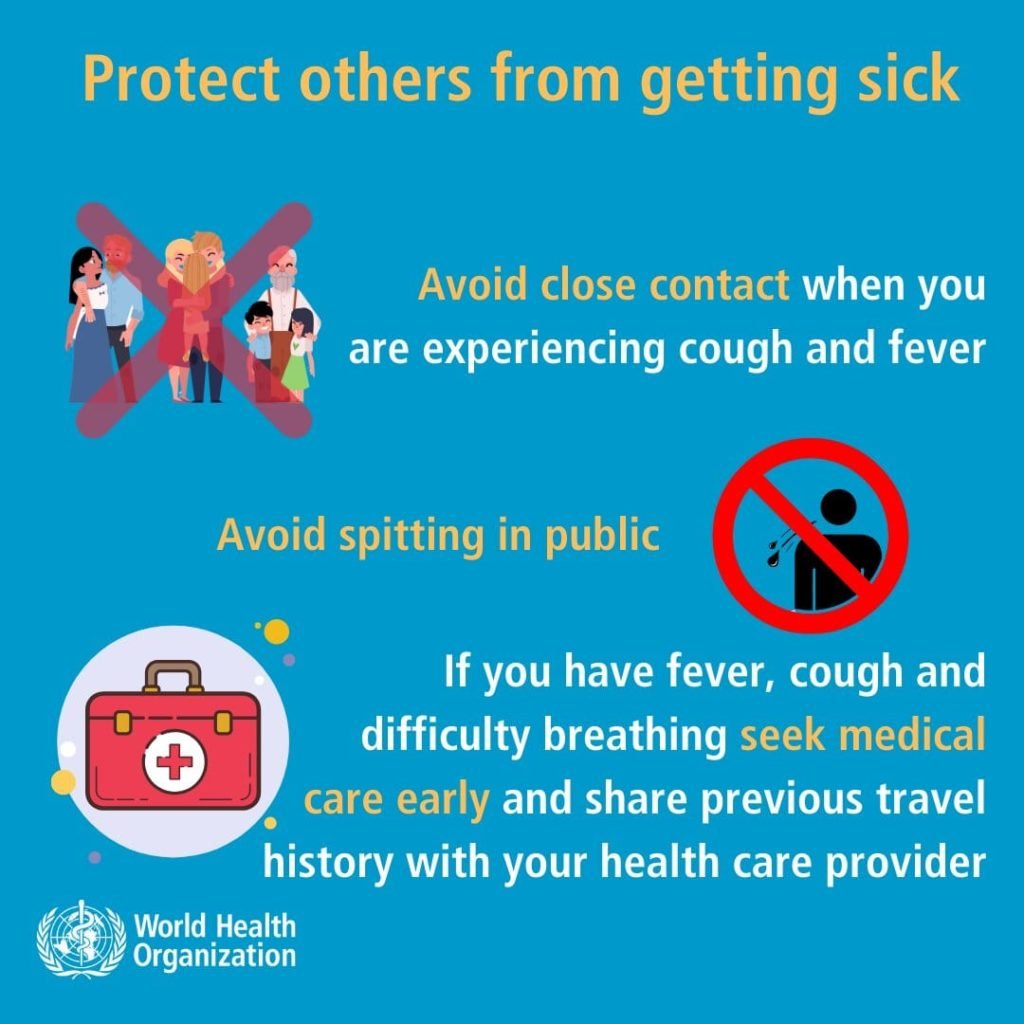
- Avoid close contact when you are experiencing cough and fever.
- Avoid spitting in public.
- If you have fever, cough, and difficulty breathing, seek medical care early and share previous travel history with your health care provider.
Practice Food Safety
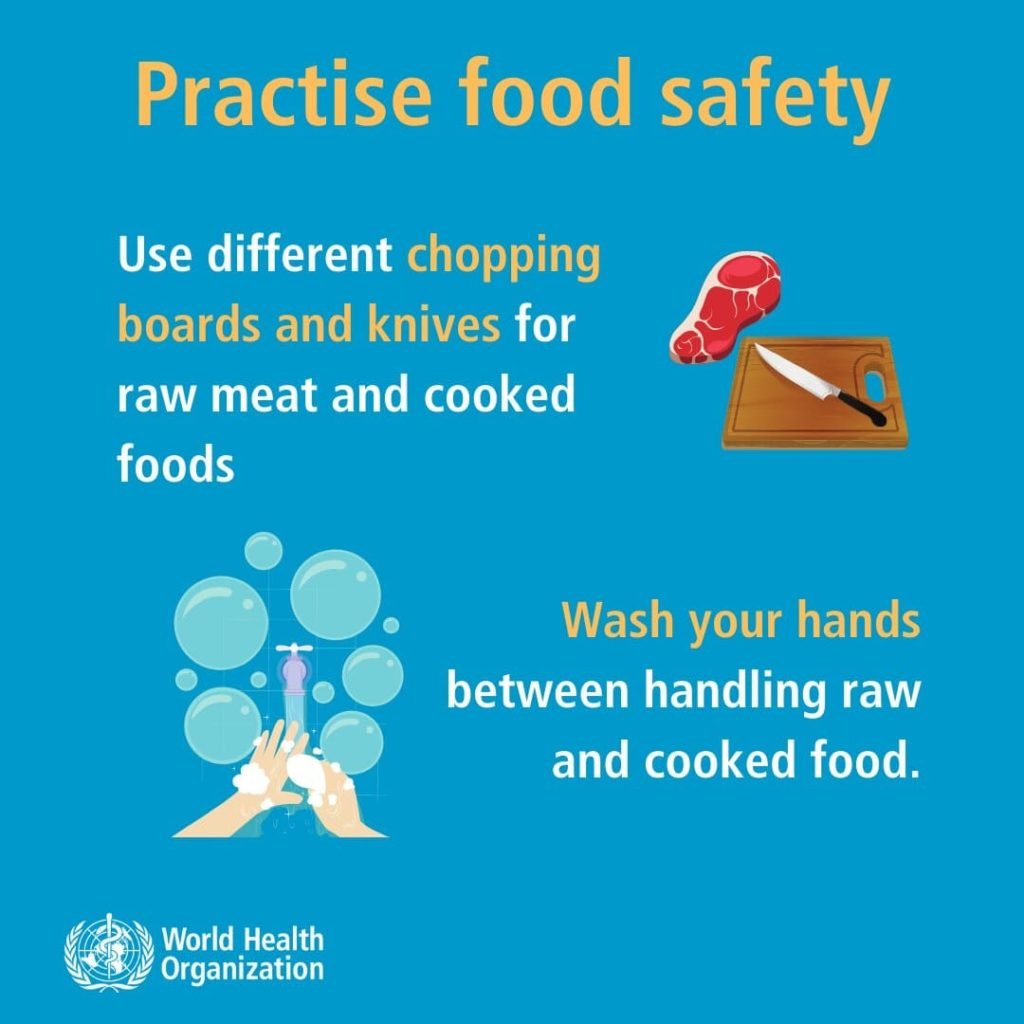
- Use different chopping boards and knives for raw meat and cooked foods.
- Wash your hands between handling raw and cooked food.

- Sick animals and animals that have died of diseases should NOT be eaten.

- Even in areas experiencing outbreaks, meat products can be safely consumed if these items are cooked thoroughly and properly handled during food preparation.
Shopping in Wet Markets
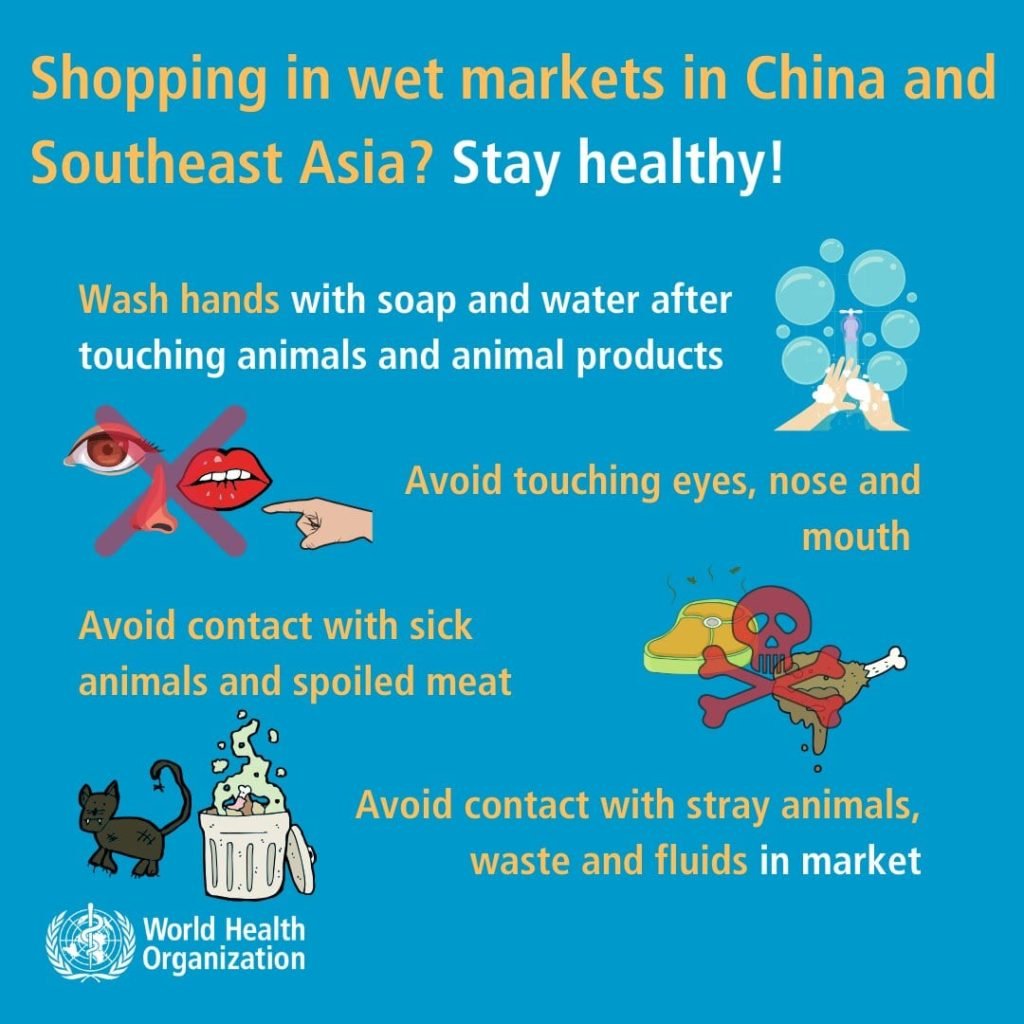
- Wash hands with soap and water after touching animals and animal products.
- Avoid touching eyes, nose, and mouth.
- Avoid contact with sick animals and spoiled meat.
- Avoid contact with stray animals, waste, and fluids in market.
Working in Wet Markets
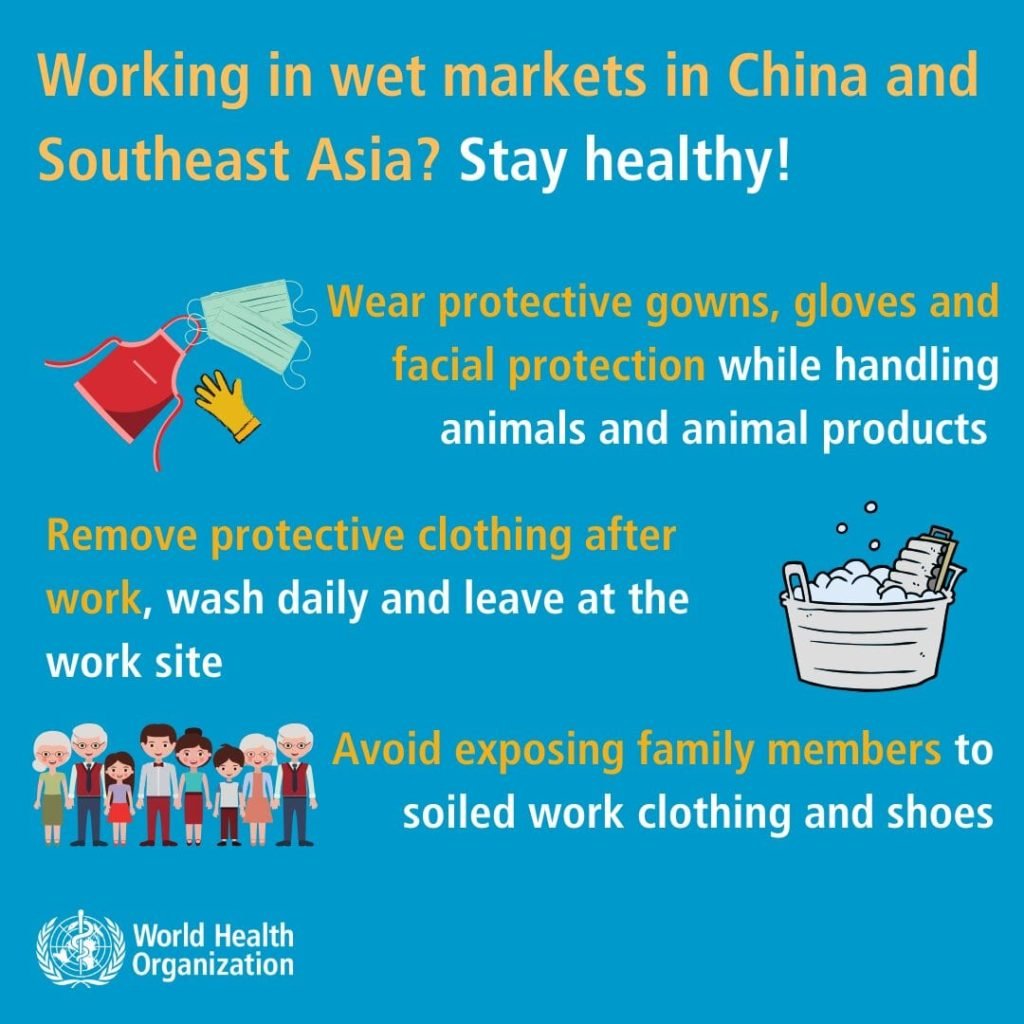
- Wear protective gowns, gloves, and facial protection while handling animals and animal products.
- Remove protective clothing after work, wash daily, and leave at the work site.
- Avoid exposing family members to soiled work clothing and shoes.
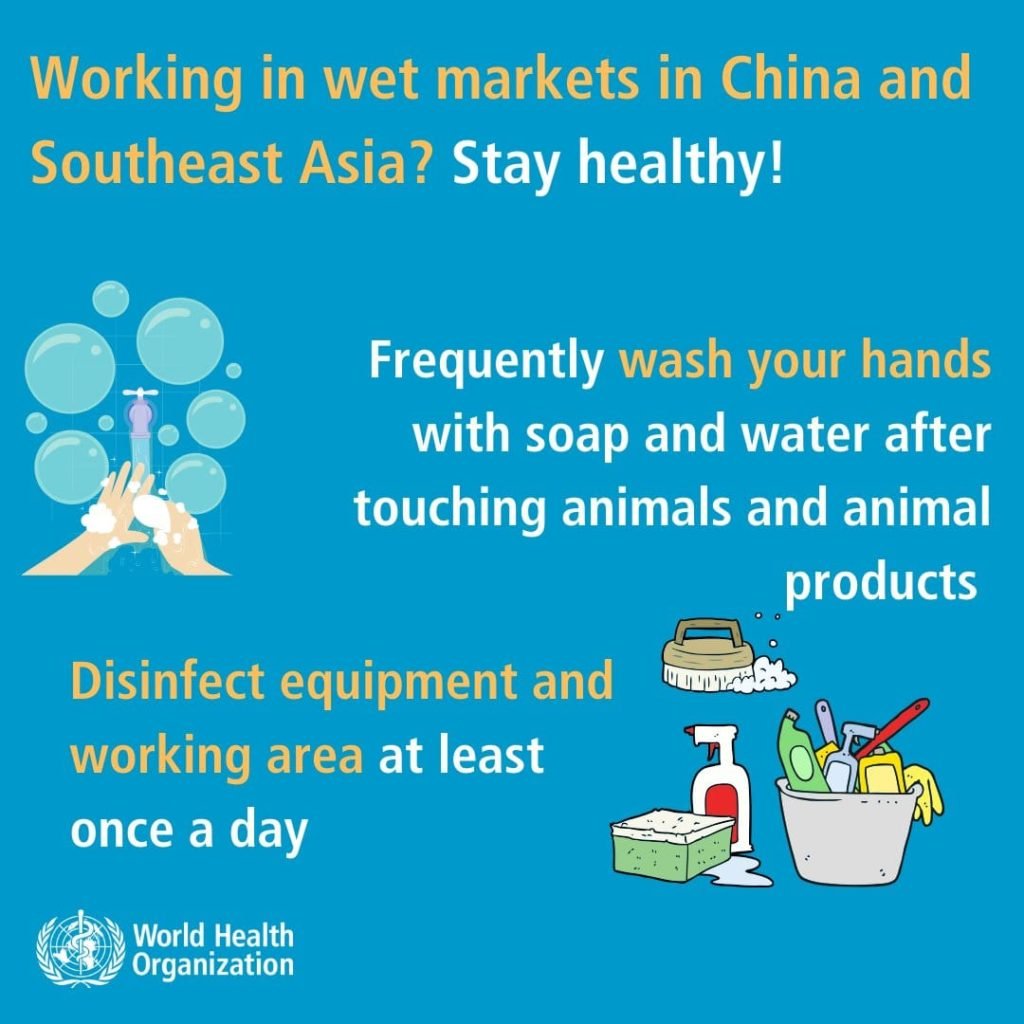
- Frequently wash your hands with soap and water after touching animals and animal products.
- Disinfect equipment and working area at least once a day.
Stay Healthy While Traveling
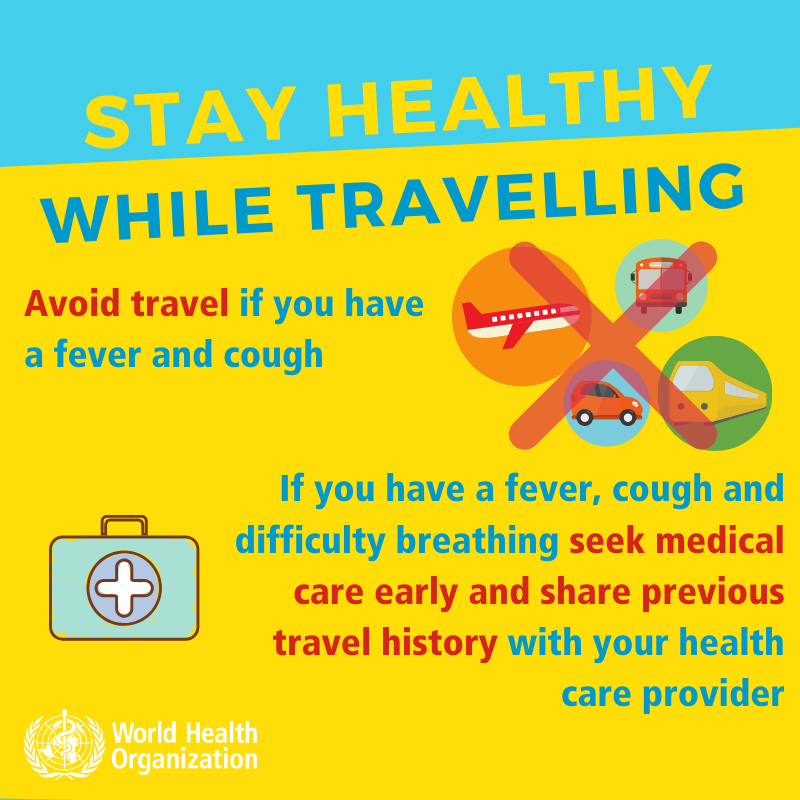
- Avoid travel if you have a fever and cough.
- If you have a fever, cough, and difficulty breathing, seek medical care early and share previous travel history with your health care provider.
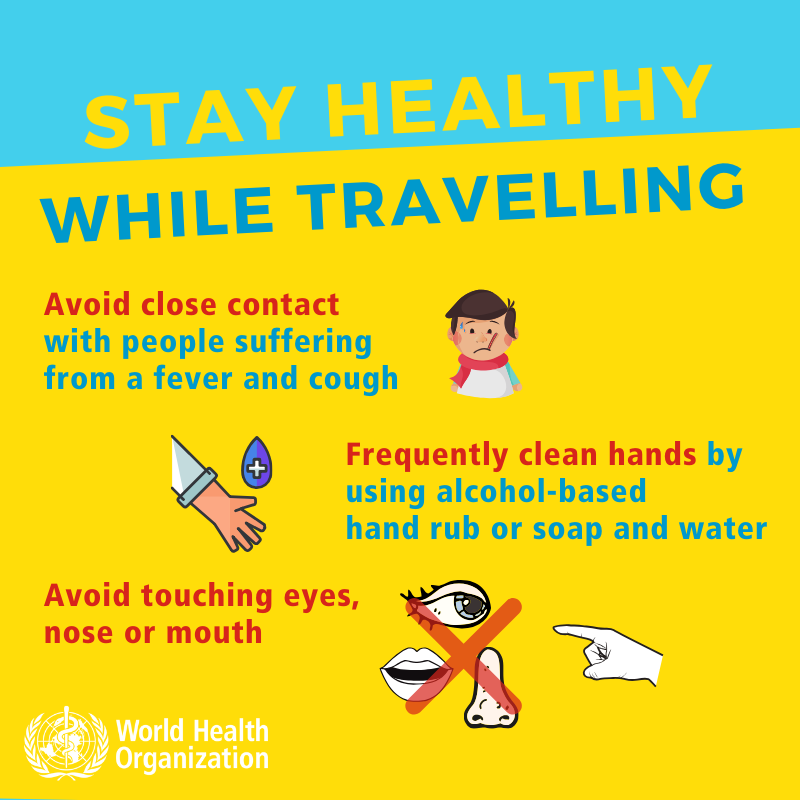
- Avoid close contact with people suffering from a fever and cough.
- Frequently clean hands by using alcohol-based hand rub or soap and water.
- Avoid touching eyes, nose or mouth.
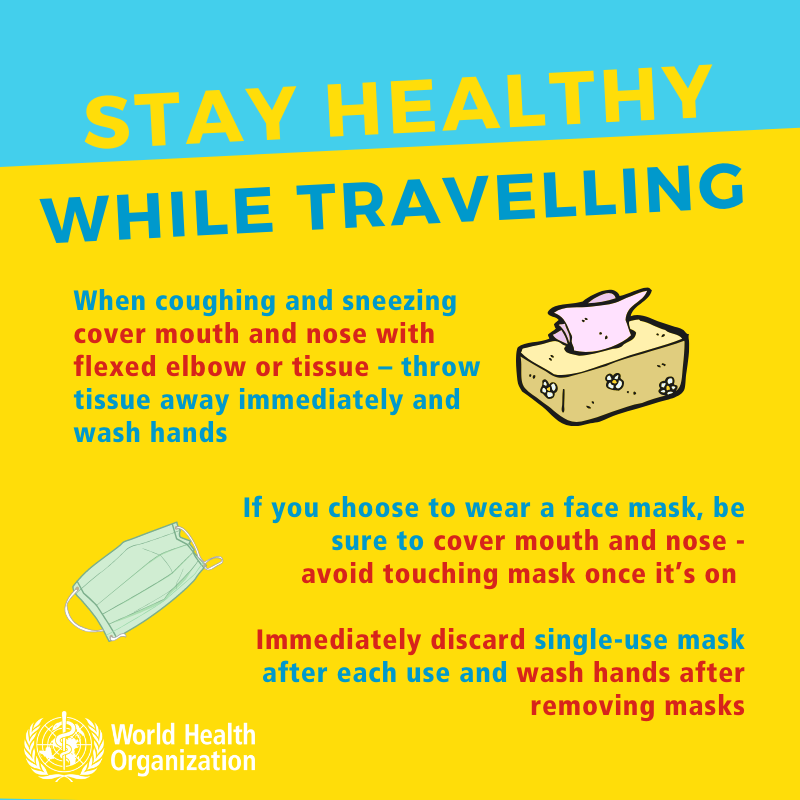
- When coughing and sneezing, cover mouth and nose with flexed elbow or tissue. Throw tissue away immediately and wash hands.
- If you choose to wear a face mask, be sure to cover your mouth and nose. Avoid touching mask once it’s on.
- Immediately discard single-use mask after each use and wash hands after removing masks.
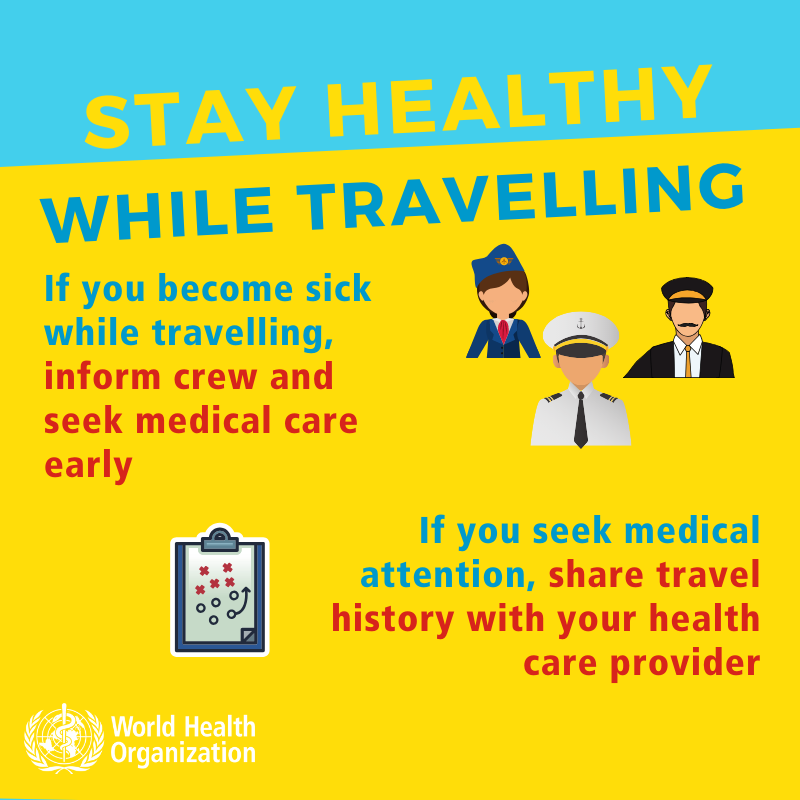
- If you become sick while traveling, inform crew and seek medical care early.
- If you seek medical attention, share travel history with your health care provider.

- Eat only well-cooked food.
- Avoid spitting in public.
- Avoid close contact and travel with animals that are sick.
Myth-Busters
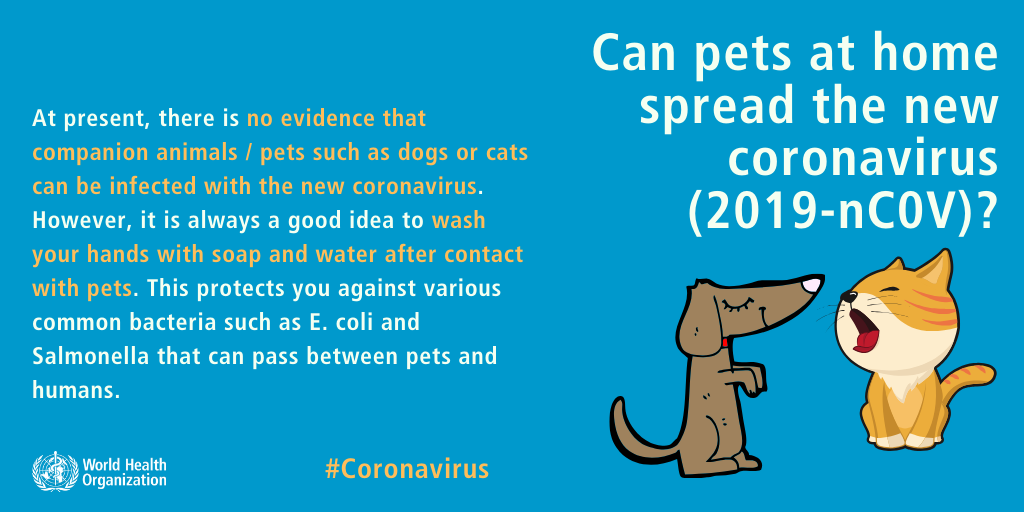
Can pets at home spread the new coronavirus (2019-nCoV)?
- At present, there is no evidence that companion animals/pets such as dogs or cats can be infected with the new coronavirus. However, it is always a good idea to wash your hands with soap and water after contact with pets. This protects you against various common bacteria such as E. coli and Salmonella that can pass between pets and humans.
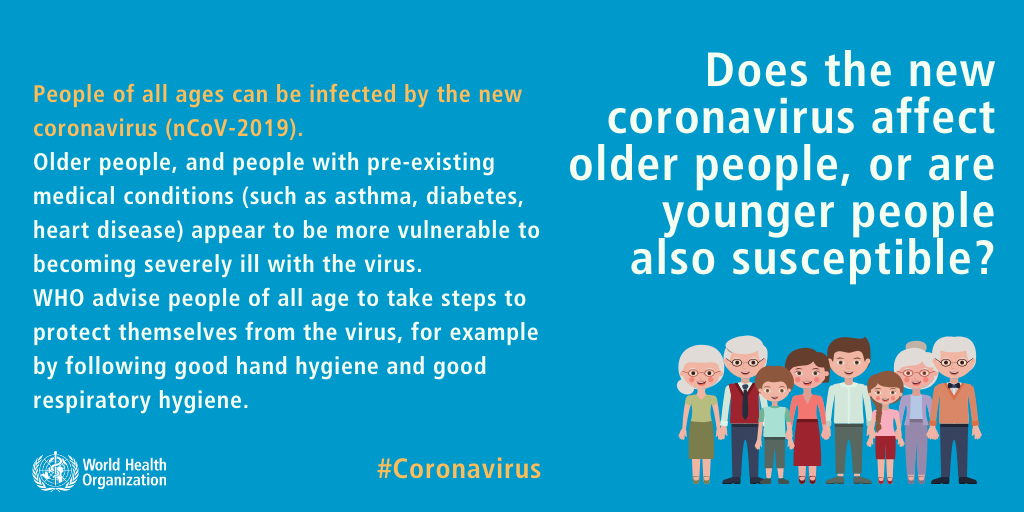
Does the new coronavirus affect older people, or are younger people also susceptible?
- People of all ages can be infected by the new coronavirus (2019-nCoV). Older people, and people with pre-existing medical conditions (such as asthma, diabetes, heart disease) appear to be more vulnerable to becoming severely ill with the virus. WHO advise people of all age to take steps to protect themselves from the virus, for example by following good hand hygiene and good respiratory hygiene.
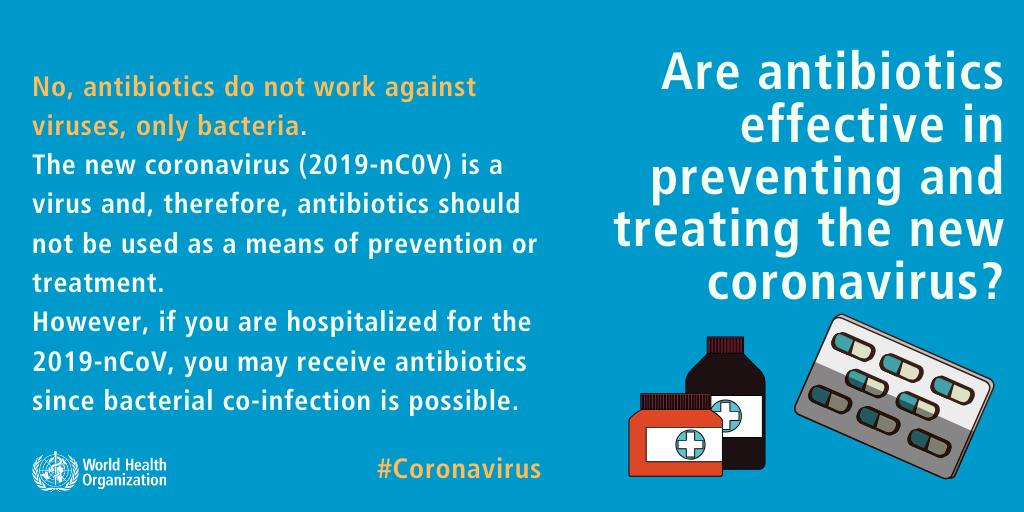
Are antibiotics effective in preventing and treating the new coronavirus?
- No, antibiotics do not work against viruses, only bacteria. The new coronavirus (2019-nCoV) is a virus and, therefore, antibiotics should not be used as a means of prevention or treatment. However, if you are hospitalized for the 2019-nCoV, you may receive antibiotics since bacterial co-infection is possible.
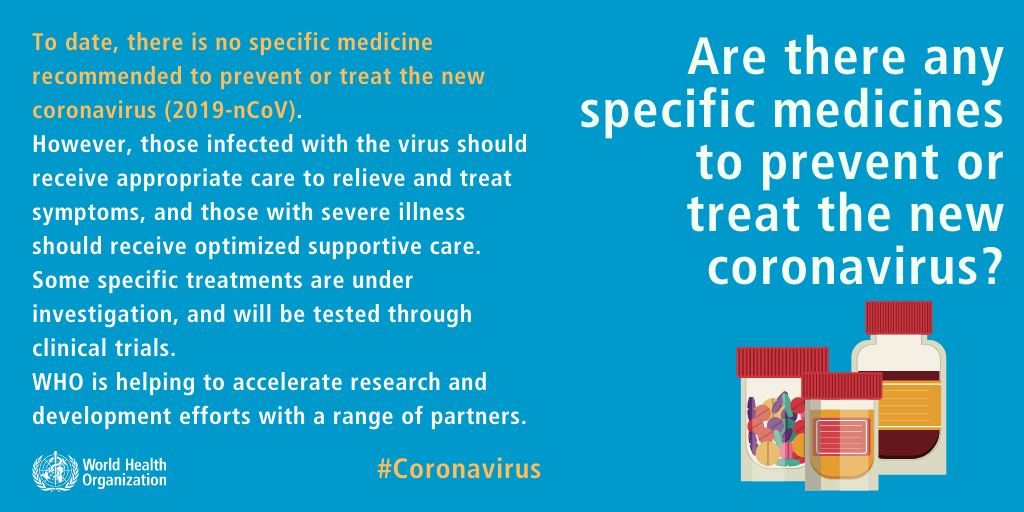
Are there any specific medicine to prevent or treat the new coronavirus?
- To date, there is no specific medicine recommended to prevent or treat the new coronavirus (2019-nCoV). However, those infected with the virus should receive appropriate care to relieve and treat symptoms, and those with severe illness should receive optimized supportive care. Some specific treatments are under investigation and will be tested through clinical trials. WHO is helping to accelerate research and development efforts with a range of partners.
Author’s Note
There are still a lot of unknowns about the 2019-nCoV but contracting the virus does not mean an automatic death sentence. Equipped with the right knowledge and observing proper hygiene, we can combat this disease together, as one Earth.